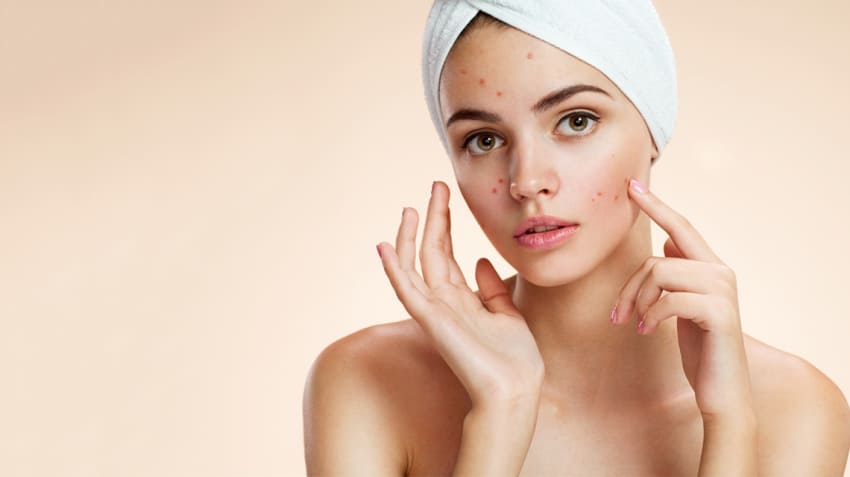Acne, a prevalent skin condition, impacts a significant portion of the global population at various stages in their lives. A range of factors can contribute to its development, with diet playing a crucial role in influencing our skin’s appearance. While scientific evidence may not support a direct correlation between specific foods and acne, practical experience has shown that certain dietary choices can trigger breakouts.
To reduce or prevent acne flare-ups, making small changes to one’s diet is essential. In the following sections, we delve into foods that contribute to acne and suggest alternative options for maintaining clearer skin.
Chapter Overview
How Does Your Diet Affect Your Skin?
Our diet plays a significant role in maintaining skin health. Here’s a brief overview:
- Hormones: Consuming certain foods can increase the production of IGF-1 hormone, which stimulates the production of sebum. An excess of sebum can lead to clogged pores and acne.
- Inflammation: Some foods may cause inflammation in the body, worsening acne and other skin conditions.
- Triggers: Specific dietary triggers vary for each person, but common culprits include dairy, refined sugars, and processed foods.
- Blood sugar: High-glycemic foods cause a spike in blood sugar levels, which may contribute to acne development.
To promote better skin health, we should aim for a balanced diet that focuses on whole foods, rich in antioxidants, healthy fats, and adequate hydration.
Top Foods That Cause Acne Breakouts
Refined Grains and Sugars
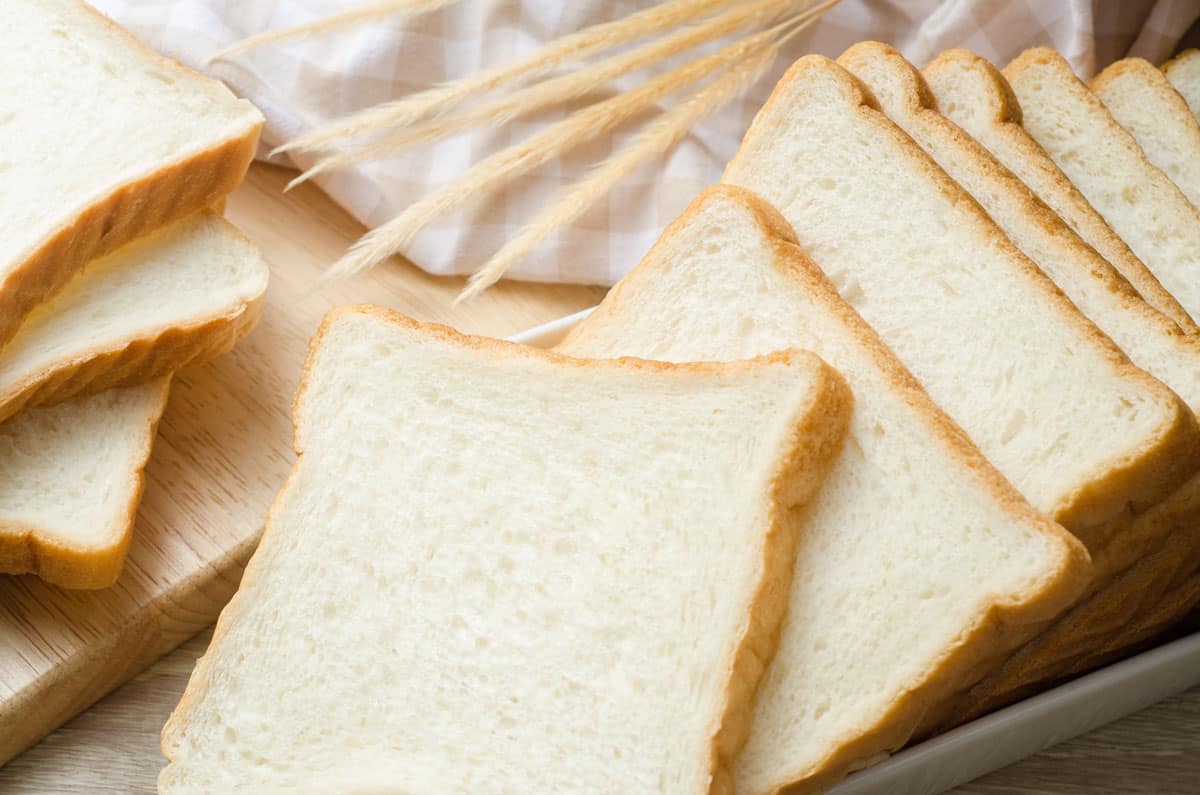
Refined carbs such as bread, crackers, pasta, white flour, white rice, and cereals, as well as sugar-sweetened beverages, sweeteners, and refined sugar, can increase the risk of acne. Consuming sugars makes one 30% more prone to acne, while refined grains increase that risk by 20%.
Ingesting refined grains and sugars may lead to inflammation. During the inflamed state, hormone production increases, which can result in acne. Additionally, refined carbs are quickly absorbed into the bloodstream, raising blood sugar levels and increasing insulin production.
Dairy Products
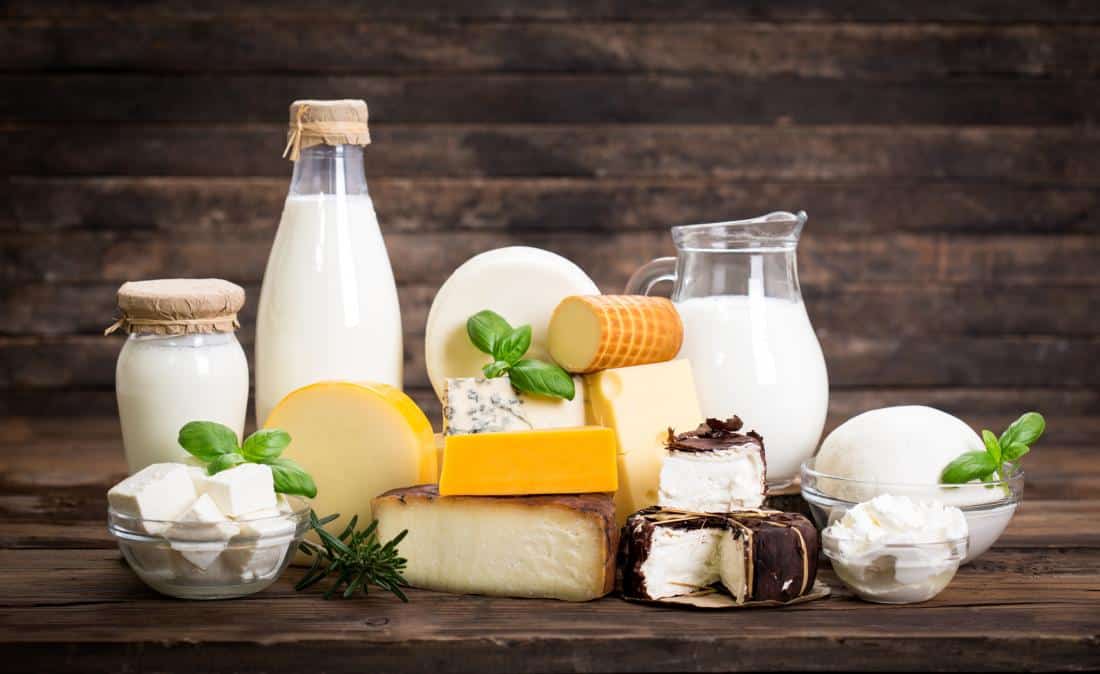
Although there’s no definitive link between milk and dairy products and acne risk, some theories suggest that milk can increase insulin levels. This contributes to acne breakouts and worsens their severity.
It is advisable to avoid cow’s milk as it stimulates the liver to produce more IGF-1 hormone.
Fast Food
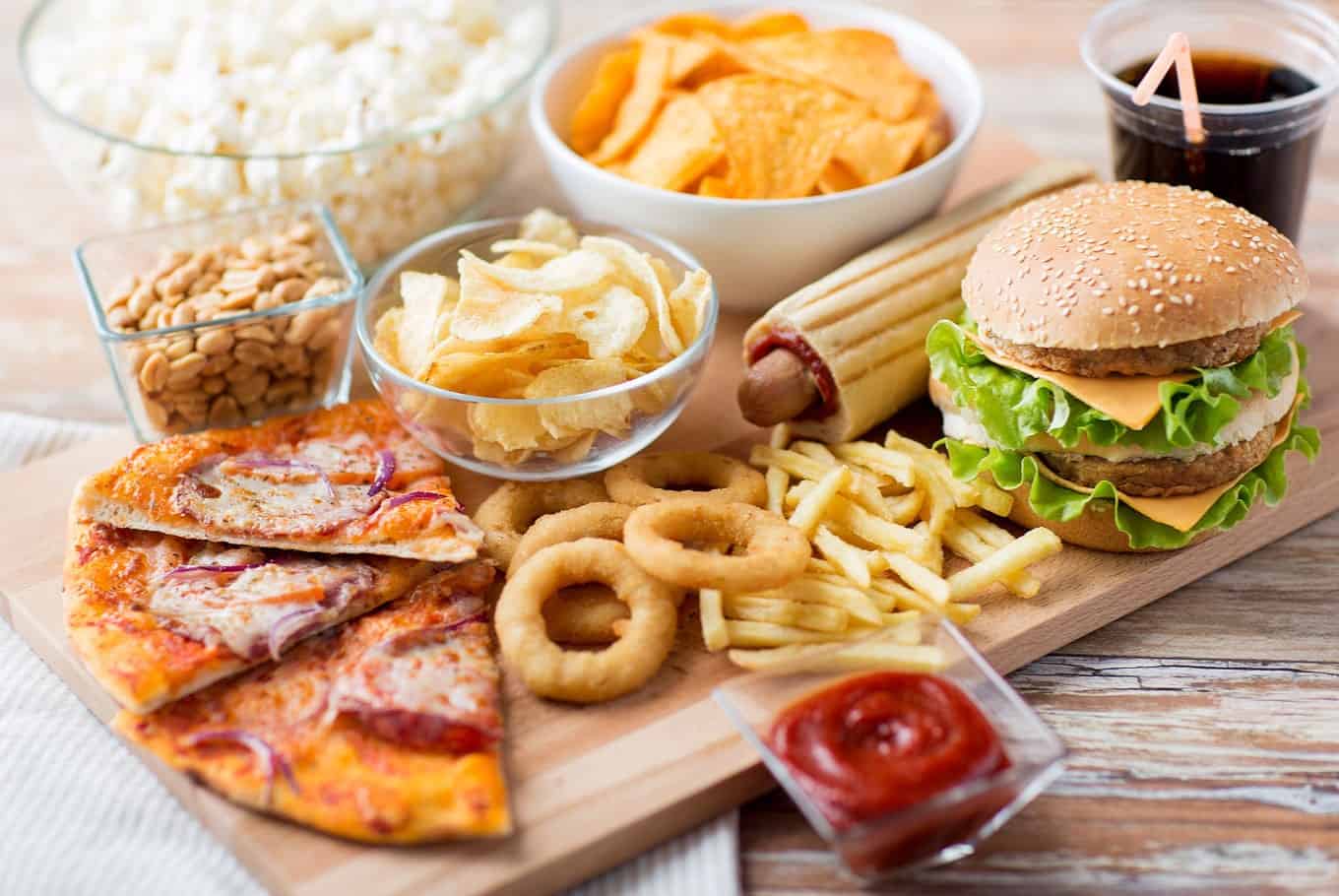
Fast food, known for its unhealthy nature, is high in fat, refined carbs, and calories. These ingredients can increase cholesterol and triglyceride levels. Regularly consuming fast food may also interfere with the hormonal balance in the body, which often leads to acne breakouts.
Chocolate

Chocolate, particularly those high in refined sugars, has been considered an acne trigger due to its ability to spike insulin levels. Studies have shown that dark chocolate and pure cocoa powder do not pose as high a risk. Nevertheless, it is advisable to limit chocolate consumption, especially for individuals sensitive or prone to acne.
Whey Protein Powder
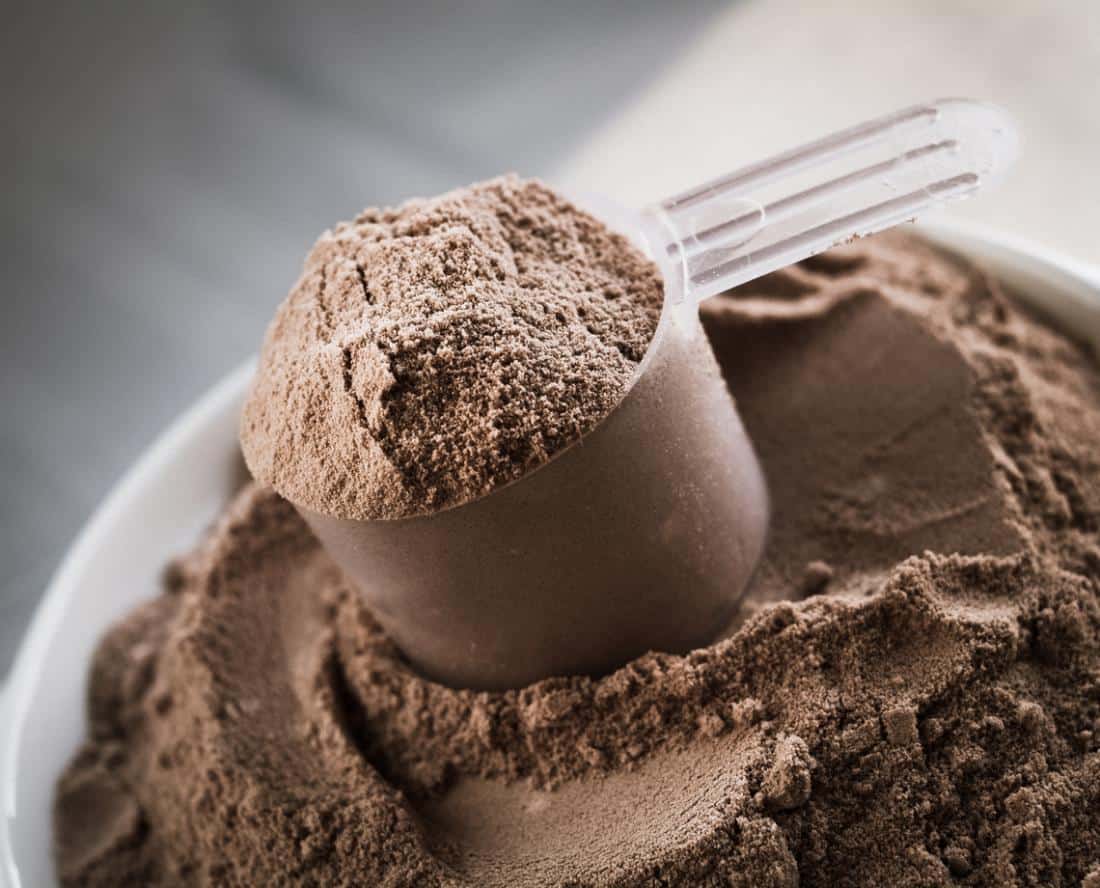
While whey protein powder aids in muscle building, it also contains amino acids that stimulate skin cell growth and division. These amino acids can increase insulin production, leading to acne breakouts.
Foods You Are Allergic To

Each person’s food sensitivities are unique, and consuming foods that one is allergic to may cause inflammation in the gut. This inflammation is an ideal condition for acne development.
How To Avoid Foods That Cause Acne
To maintain clear and acne-free skin, we recommend incorporating these dietary and lifestyle changes:
- Incorporate fresh fruits and vegetables in our diet, as they’re rich in vitamins and fiber, reducing cravings for sugary foods.
- Stay hydrated by drinking plenty of water and unsweetened tea for detoxification.
- Kick off our mornings with a glass of water and lemon juice to stimulate toxin elimination.
- Boost vitamin A intake with foods such as carrots, papaya, spinach, cantaloupe, and sweet potatoes to balance sebum production.
- If craving chocolate, choose dark chocolate instead of milk chocolate, as it contains more antioxidants.
- Include vitamin C-rich foods like citrus fruits and leafy greens, which help skin produce collagen.
- Opt for fatty fish and other omega-3-rich foods to maintain supple skin.
In addition, we should consider adding green tea, probiotics, soy products, and vitamin E to our diet. These ingredients offer anti-inflammatory properties and antioxidants that help fight acne. By adopting these changes, we can effectively prevent and treat acne.
How To Treat And Manage Acne?
In order to manage acne, we recommend using over-the-counter medications or natural remedies, along with dietary changes. Here are some key steps to prevent and treat acne:
- Cleanse: Wash your skin and face twice daily and additionally after sweating or engaging in sports.
- Hair care: Regularly shampoo your hair to keep it oil-free.
- Choose products wisely: Opt for oil-free skincare products and makeup to prevent clogged pores.
- Hands off: Avoid picking or scratching pimples to prevent scarring and infection.
- Sun protection: Minimize sun exposure and wear sunscreen when outdoors.
- Manage stress: Incorporate stress-reducing techniques into your daily routine.

